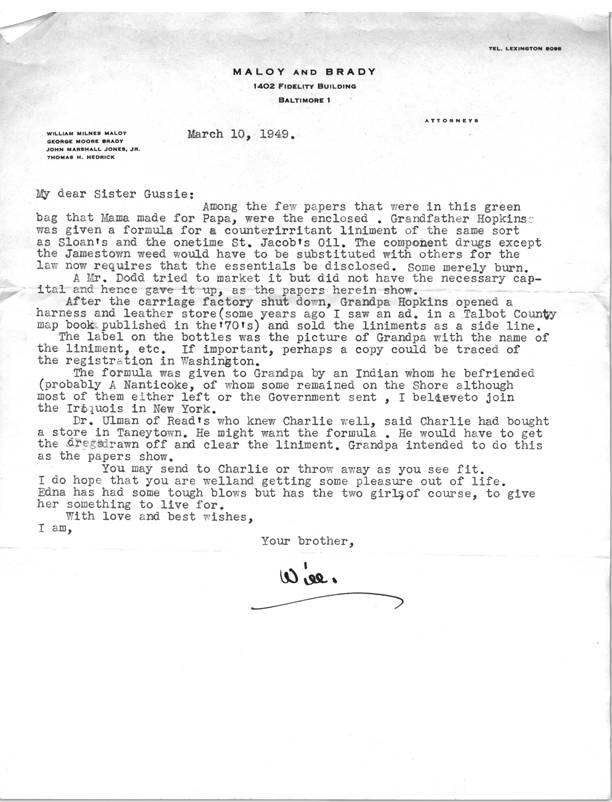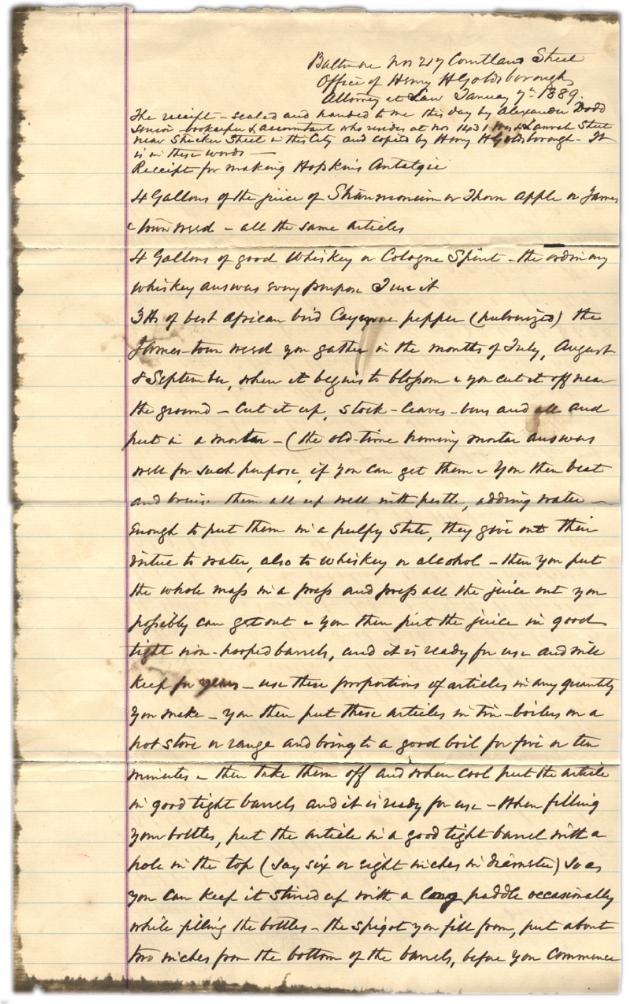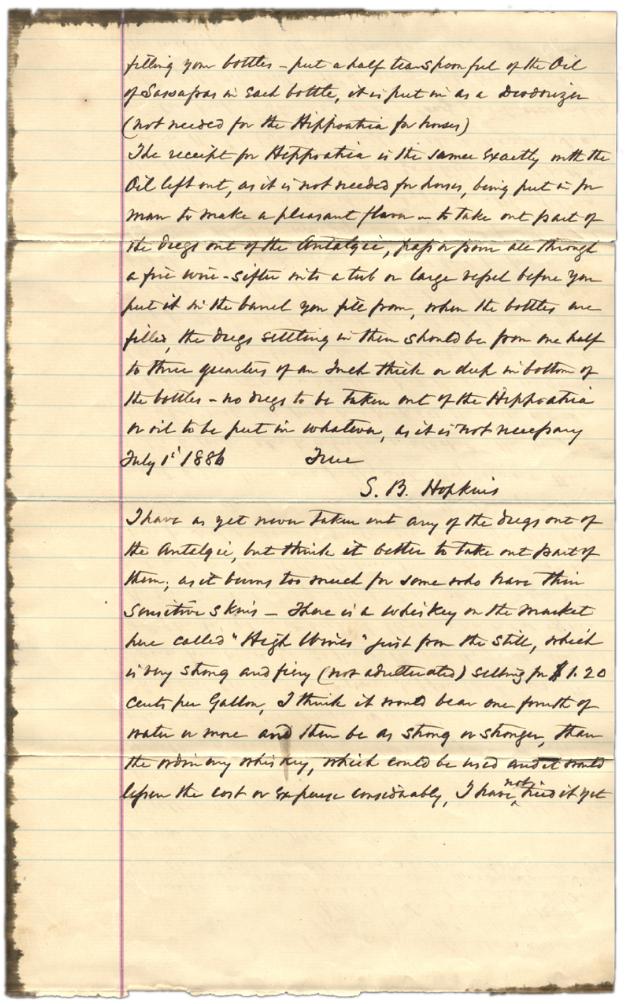The silliest story culled from the Rescued Papers has to be that of Samuel Hopkins and his "receipt." I remember how tickled Yo was when this first turned up. Samuel Hopkins was Ada Mai Maloy Edgett's great grandfather on her mother's side. All we know of him so far is contained in a letter written by Ada's brother William to their sister. You may see a scan of that below, and I'll give the text here.
March 10, 1949
My dear Sister Gussie:
Among the few papers that were in this green bag that Mama made for Papa, were the enclosed. Grandfather Hopkins was given a formula for a counterirratant liniment of the same sort as Sloan's and the onetime St. Jacob's Oil. The component drugs except for the Jamestown weed would have to be susbstituted with others for the law now requires that the essentials be disclosed. Some merely burn.
A Mr. Dodd tried to market it but did not have the necessary capital and hence gave it up, as the papers herein show.
After the carriage factory shut down, Grandpa Hopkins opened a harness and leather store (some years ago I saw an ad. in a Talbot County map book published in the '70's) and sold the liniments as a side line.
The label on the bottles was he picture of Grandpa with the name of the liniment, etc. If important, perhaps a copy could be traced of the registration in Washington.
The formula was given to to Grandpa by an Indian whom he befriended (probably a Nanticoke, of whom some remained on the Shore although most of them either left or the Government sent, I believe to join the Iroquois in New York.
Dr. Ulman of Read's who knew Charlie well, said Charlie had bought a store in Taneytown. He might want the formula. He would have to get the dregs drawn off and clear the liniment. Grandpa intended to do this as the papers show.
You may send to Charlie or throw away as you see fit. I do hope that you are well and getting some pleasure out of life. Edna has had some tough blows but has the two girls, of course, to give her something to live for.
With love and best wishes,
I am,
Your brother,
[Will]
Yes, we have the green bag and all the papers concerning Hopkins' Antalgic. They are handwritten and typescript copies of originals now lost. The gist of the story is that, as we see from Uncle Will's letter and the formula transcribed in the next History, we had an ancestor who, among other things, made and sold a liniment that was used for both people (the Antalgic) and horses (the Hippocrias omitted the scenting oil as unnecessary.) I presume that as great great great grandfather Hopkins aged, he moved to Baltimore, perhaps even into his daughter's house. Because on July 6, 1886, Alexander Dodd and Samuel B. Hopkins, both then of Baltimore, Maryland, entered into an agreement to make Hopkins' liniments. Samuel was to oversee the manufacture, and Alexander to market the stuff. Alexander agreed to pay Samuel or his heirs six dollars a week for one year, then after that to pay ten per cent of the gross from sales. On Samuel's death, Alexander was to be sole owner of the formula.
Unfortunately, another manuscript dated January 4th, 1889, lists the conditions under which Samuel's heirs bought back Alexander's contract for one dollar, he being unable to pay the dues and per centages stipulated in 1886. And there the story rests until Uncle Will brings it all up again in 1949. For now, we know little more than that. Where Gussie was that she needed to be written, what blows Edna had endured or even who Charlie was remain small mysteries.
Below you can see grat Uncle Will's letter, and the liniment receipt. On the next page is more information about the receipt, and a marvelous addendum to the story.



|